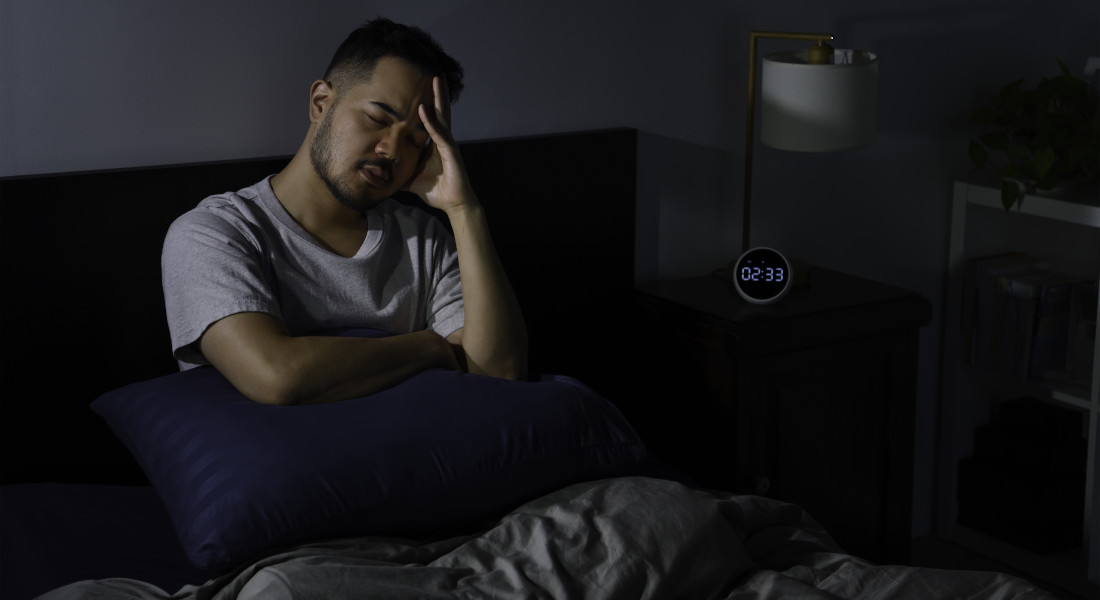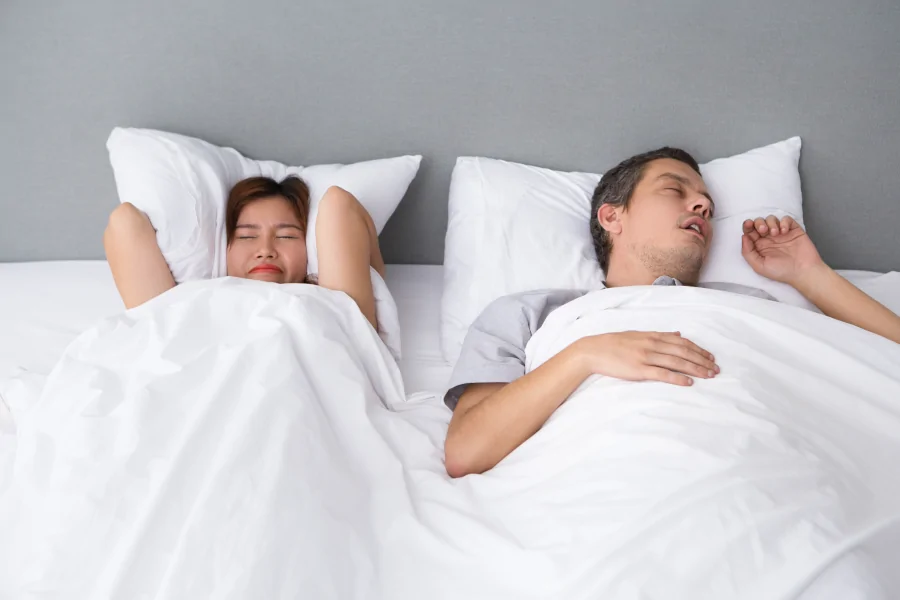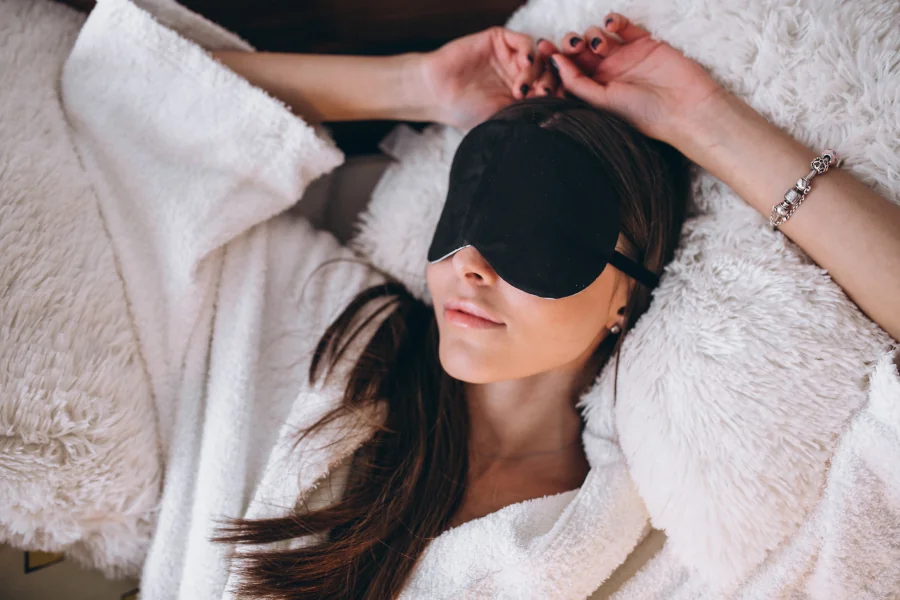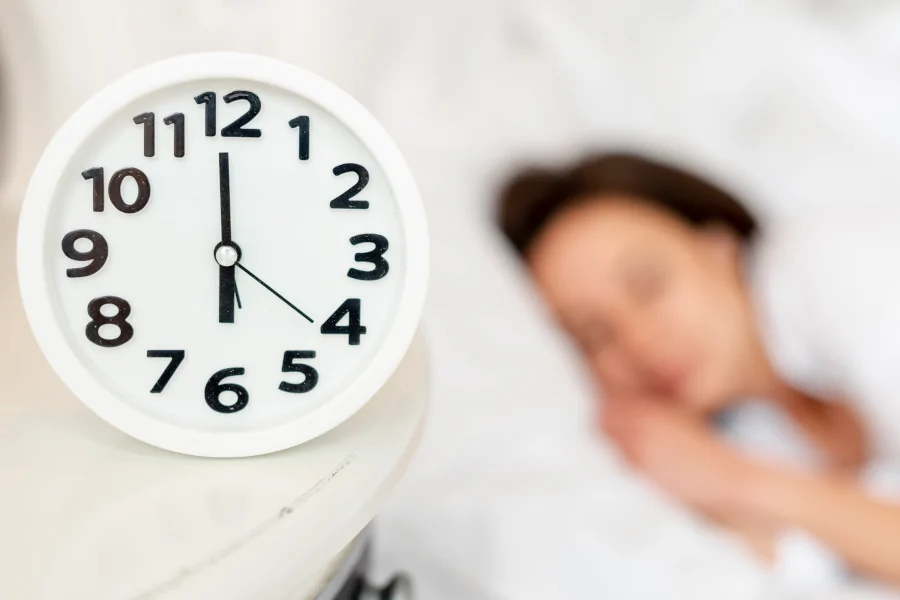Lying in bed at night and not being able to sleep is a horrible feeling. This is a very common occurrence and everyone at some point in their lives will struggle to get to sleep. However, this may not be a one off occurrence. If you do struggle to get to sleep or even stay asleep at night, you may have something called insomnia.
What is insomnia?
Insomnia is a common sleep disorder that makes it hard to fall asleep or stay asleep, which results in people feeling unrefreshed when they wake up in the morning. This can lead to daytime disruptions and can affect other aspects of your life.
Insomnia is more commonly present in older people. It has also been widely reported that women are more likely to suffer from insomnia than men. In Western countries, up to 10% of the population meet the diagnostic criteria for insomnia disorder.
Insomnia symptoms
You are considered to have insomnia if you may have one or more of the following symptoms:
- Lie awake at night
- Find it hard to fall asleep
- Still feel tired after waking up in the morning
- Feel tired, irritable and exhausted during the day
- Wake up several times during the night
- Wake up early and cannot go back to sleep
- Find it difficult to concentrate during the day because you’re tired
Other symptoms of insomnia may include:
- Increased risk of errors or accidents
- Worrying about sleep
- Daytime tiredness or sleepiness
- Irritability depression, or anxiety
- Not feeling well-rested after a night’s sleep
- Difficulty paying attention, focusing on tasks, or remembering things
Some people can have occasional episodes of insomnia which pass, however, for many people it can last for months or even years. It’s important to be aware of the symptoms as insomnia can become a chronic problem or even be a sign of a more serious disorder.
What causes insomnia?
There are many causes for insomnia and sometimes it can be difficult to identify a clear cause. However, the most common causes of insomnia are:
Stress
Sometimes insomnia can be triggered by a stressful event such as issues at work, financial hardship, or bereavement. The problem continues even after the event has passed and can thus develop into general anxiety about sleep.
Anxiety
Sleep anxiety or the fear of going to sleep can cause insomnia. In this case, you may be apprehensive or have a negative association with sleep which causes you to stay awake. Some people also suffer from a phobia of sleep called somniphobia.
Poor sleeping routine and sleeping environment
A good night’s sleep begins with good sleeping habits. Poor sleeping habits such as inconsistent sleeping times, daytime naps, using electronic devices shortly before bed and not ‘winding down’ can cause insomnia. A poor sleeping environment consisting of an uncomfortable bed, uncomfortable pillows and a brightly lit and hot bedroom can potentially lead to insomnia.
Occasionally, insomnia can develop because of repeated disturbances from a bed partner. This can include snoring, excessive restlessness and fidgeting.
Lifestyle Factors
Insomnia can result as a use of substances which affect sleep. Common examples include:
- Caffeine
- Nicotine
- Alcohol
- Recreational drugs
These substances effect the central nervous system i.e., the brain, where important processes relevant to sleep take place. Therefore, consuming them before bed can cause you to have disturbed sleep.
Changes to your sleeping patterns can also cause insomnia e.g. change in shifts or a long haul flight (jet lag).
Mental health conditions
Many people develop insomnia because of a pre-existing mental health condition. It’s estimated that approximately 50% of insomnia patients have a coexisting psychiatric condition.
It is recognised that those with common mental health conditions such as depression also experience difficulties with their sleep. Other mental health conditions such as bipolar disorder, schizophrenia, obsessive-compulsive disorder (OCD), personality disorders and post-traumatic stress disorder can also affect the quality of sleep you receive and thus cause insomnia.
Chronic or physical health
In some cases, insomnia can be caused by underlying health conditions which may be chronic or physical in nature such as:
- Heart conditions such as angina or heart failure
- Respiratory conditions such as chronic obstructive pulmonary disease (COPD) or asthma
- Neurological conditions such as Alzheimer’s disease or Parkinson’s disease
- Hormonal problems such as overactive thyroid
- Joint or muscle problems such as arthritis
- Genito-urinary problems such as urinary incontinence or an enlarged prostate
- Other sleep disorders such as sleep apnoea, restless legs syndrome, night terrors and sleepwalking
- Chronic pain
Medication
Sometimes insomnia can result as a side effect due to prescription or over-the-counter medications.
These include:
- Antidepressants* such as citalopram and fluoxetine
- Beta-blockers
- Steroids
- Non-steroidal anti-inflammatory drugs (NSAIDs)
- Stimulants used to treat attention deficit hyperactivity disorder (ADHD) or narcolepsy
Please check the information leaflets that are provided with any medication you take to if insomnia or sleep disturbances are listed as a possible side effect.
*N.B. not all antidepressants cause insomnia, and some antidepressants have been found to improve sleep.
Types of insomnia
Insomnia is commonly classified by duration:
Short term insomnia: Less than 3 months
Chronic insomnia: More than 3 months
Insomnia was previously classified as being primary or secondary:
Primary insomnia: This is where insomnia is present without any co-existing mental or physical health condition.
Co-morbid insomnia: This is where insomnia exists in conjunction with another medical or mental condition. Sometimes, insomnia can make the co-existing condition worse and hinder it’s treatment.
Other insomnia terms that are sometimes used
Sleep onset insomnia: This describes the difficulty falling asleep at the beginning of the night. This is associated with ‘tossing and turning’ in bed without being able to fall asleep.
Sleep maintenance insomnia: The inability to stay asleep through the night. Often, this means waking up at least once during the night and being unable to return to sleep.
Early morning awakening insomnia: This is when a personal wakes up well before planned in the morning.
Insomnia side effects
Insomnia is associated with numerous complications. The most common side effect is sleep deprivation. This can cause daytime sleepiness and is particularly dangerous if you are driving or doing other tasks which require attention and alertness.
Other common complications of sleep deprivation and insomnia include:
Depression: Shorter sleep duration and sleep disturbances can cause low mood and low energy which for some people lead to depressive thoughts.
Anxiety: Insomnia can cause a fear of falling asleep and lead to your ‘mind racing’ when in bed and thus cause anxiety.
High blood pressure: Poor sleep can lead to high stress levels, decrease in physical exercise and unhealthy food choices. This in turn increases the risk of developing high blood pressure.
Heart attacks: Poor sleep can lead to high stress levels, and other unhealthy habits leading to an increased risk of heart attacks.
Stroke: Poor sleep impairs the natural blood pressure fall that occurs during night time sleep and contributes to hypertension thus increasing the risk of stroke.
Obstructive sleep apnoea: Sleep deprivation can cause reduced oxygen saturation and upper-airway muscle tone thus increasing the risk of OSA. It is recognised that OSA and insomnia often coexist in patients.
Type 2 diabetes: Chronic sleep deprivation can lead to insulin resistance resulting in high blood sugar levels and diabetes.
Obesity: Sleep loss or insomnia creates a hormone imbalance which makes overeating more likely, which causes weight gain and eventually leads to obesity.
This list is by no means exhaustive. Insomnia can cause a range of side effects and it is important to combat it as soon as possible.
How is insomnia treated, and is there a cure?
There is currently no pharmacological cure for insomnia. However, there are home remedies and professional support available to help tackle insomnia which can in some cases lead to a ‘cure-like’ outcome.
Home remedies
Making small changes can sometimes help you to get a good night’s sleep. The following methods can potentially be helpful for some people:
- Avoid tea, coffee, alcohol and smoking shortly before going to bed.
- Avoid large meals just before bedtime.
- Create a relaxing bedtime routine.
- Make sure your bedroom environment is comfortable in terms of bedding and temperature.
- Avoid associating your bedroom with anything other than sleep and sex.
- Set a specific time to get up daily and avoid taking daily naps.
Chamomile: Drink as a tea or use as an essential oil. A 2017 study found that older with insomnia have an improved sleep quality with the use of chamomile extract.
Lavender oil: Use as a pillow spray or in a patch, massage oil, or aromatherapy diffuser. A 2020 systematic review (type of study) found that lavender improved the onset of sleep, sleep duration, and quality of sleep in those with sleep disorders.
Regular Exercise: This will boost well-being, mood, fitness levels thus helping you get a better night’s sleep. A 2015 trial by the European Sleep Research Society concluded that 150 minutes of exercise a week reduced depression and anxiety in those with insomnia. It also significantly improved the symptoms of insomnia for participants.
Progressive muscle relaxation: This is a deep muscle relaxation technique suggested by the American Academy of Sleep. It helps the body relax and promote sleepiness.
N.B. Try these home remedies where possible to help ease the symptoms of insomnia. If these do not work, consider seeking professional help from a medical expert.
Professional help
In the case that home remedies do not work, please approach an appropriate medical expert, and seek help as needed.
There are a range of treatments available to treat insomnia medically.
The gold standard treatment is cognitive behavioural therapy for insomnia (CBT-I).
The aim of this treatment is to help change unhelpful thoughts and behaviours which may be adding to the insomnia. It is recommended by the American Academy of Sleep and has a strong evidence base in the treatment of insomnia.
Other forms of treatments include:
- Z-drugs such as zolpidem and zopiclone
- Melatonin
- Benzodiazepines
- Over-the-counter sleeping pills
These drugs are not recommended for long term use as their effectiveness isn’t completely clear in some cases and in others effectiveness decreases with prolonged use.
Many of these drugs also have side effects which may worsen other mental or physical health conditions.
Are there any additional risk factors to insomnia?
Often, it’s hard to tell the exact trigger for insomnia. However, there are some well-known risk factors that can increase your chance of developing insomnia:
Age: You are at a higher risk of developing insomnia if you are over the age of 60.
Stress: Stressful times and events can lead to transient insomnia. In some cases, severe stress can lead to a longer-lasting insomnia.
Gender: Women are more likely to develop insomnia than men. This may be due to hormonal changes in the menstrual cycle or menopause. Pregnancy and childbirth can sometimes lead to insomnia. Learn more about insomnia in women.
Irregular work schedule: Working varied shifts or travelling long distances can disrupt your sleep cycle and thus lead to insomnia.
Existing mental health disorder or physical health conditions: These can cause sleep disturbances which can lead to insomnia.
How can Dr Dipesh Mistry help?
Insomnia is a complex condition. Due to the huge number of possible causes and varying symptoms, no two patients experiencing insomnia are ever the same. It is important to identify insomnia as early as possible and take the right steps to ensure the best treatment and care is given to avoid complications.
As an experienced sleep physician and psychiatrist I have helped many patients overcome their insomnia. Please get in touch if you are interested in a sleep medicine consultation or personalised one to one CBT-I for insomnia.









